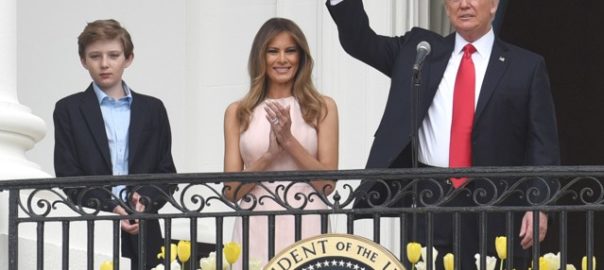By Kent R. Kroeger (NuQum.com, January 6, 2020)
In the basement of the Democratic National Committee’s (DNC) main headquarters in southeast Washington, D.C. reside two reminders as to why the Democrats should never take an election for granted.
One is a metal filing cabinet that had been broken into during the 1972 Watergate break-in. And the other is a DNC computer server that had been compromised by Russian hackers in the 2016 election.
To be fair, there is no hard evidence that the Watergate break-in affected the 1972 election in which Richard Nixon beat George McGovern in an historic landslide.
In contrast, there is evidence the stolen “Podesta emails,” published by Wikileaks in October 2016, did have a discernible impact on the 2016 outcome by stunting Hillary Clinton’s momentum following her strong debate performances (see my analysis here).
Reminders of the Democrats’ 2016 election debacle are everywhere inside the DNC headquarters building located just three blocks from the U.S. Capitol: an “I’m With Her” sign is displayed prominently in one office; a photo of Hillary Clinton surrounded by supporters sits prominently on another office desk; and Clinton 2016 bumper stickers and banners sprinkled here and there.
One could be forgiven leaving the DNC offices with the impression the Democrats are still fighting the 2016 election. That is, in fact, an accusation leveled by many Republicans, conservative pundits and even a few Democrats.
“Democrats have made a serious mistake by launching impeachment proceedings against President Donald Trump,” opined University of Chicago law professor Eric Posner on MarketWatch.com last October. “They are replaying the Republican impeachment of Bill Clinton in 1998, a futile exercise that damaged Republicans, enhanced Clinton’s power, and caused institutional damage as well.
But other than the obvious similarities— a president being impeached by a U.S. House under opposition party control at a time when the economy is strong — why might 2020 be different?
For one, 2020 is a presidential election year. Whereas, in 1998, Bill Clinton never had to face voters after his impeachment and Senate acquittal. It was easier for voters to defend Clinton knowing they wouldn’t need to rationalize his insalubrious Oval Office behavior in the context of a vote decision. Indeed, the MoveOn organization formed in September 1998 as sentiments grew that the Republican attempt to impeach and remove Clinton was distracting the government and public from more important matters.
Secondly, for reasons not necessarily understood, Trump’s job approval does not seem to be affected by the relatively strong economy experienced during his first three years in office.
When Vanderbilt political science professor John Sides compared the University of Michigan’s Index of Consumer Sentiment with presidential job approval, he found that higher levels of consumer sentiment translated into higher presidential job approval — except for two presidents: Barack Obama and Donald Trump.
During Trump’s term, as people’s views of the economy have grown more positive, his job approval numbers have barely moved (see Figure 1 for Trump’s RealClearPolitics average job approval ratings over time). The economy is up, but Trump’s approval has been basically flat since May 2018.
Figure 1: Trump’s Job Approval Ratings since January 2017

According to Sides, Trump’s current job approval rating is about 15 points lower than it should be given the historical relationship between economic conditions and presidential job approval.
“Perhaps some of Trump’s relatively low popularity is because he inspires such strong feelings in his detractors. Some of that can’t be ruled out,” conjectures Sides. “But much of this disjuncture between views of the economy and presidential approval isn’t about Trump as a person so much as the growing polarization of our politics.”
Sides also suggests Trump has not done an effective job emphasizing the strong economy; in part, because of the constant distractions constantly swirling around Trump (Russiagate, the Charlottesville protest, the Zelensky phone call, etc.).
Which brings us to the Democratic Party’s strategy on impeachment. Pelosi and the congressional Democrats are doing their damnedest to keep people thinking about Trump’s clumsy misdeeds and not let him receive credit for the economy and other policy successes. If the Sides analysis is correct, the Democrats’ impeachment strategy — with an indispensable assist from the national news media — might be working very well in that regard.
Focusing on the inevitable futility of the push to remove Trump misses its tactical importance for the Democrats. The more time the news media covers the events surrounding a ‘perfect’ phone call with Ukrainian President Volodymy Zelensky, the more Trump is constrained in controlling the nation’s political and media agenda. And, subsequently, the less likely Trump is reelected.
[Though recent events in Iraq and Iran should remind Democrats that a U.S. president has many opportunities and tools to control the public agenda.]
- K.R.K.
Please send comments to: kroeger98@yahoo.com
